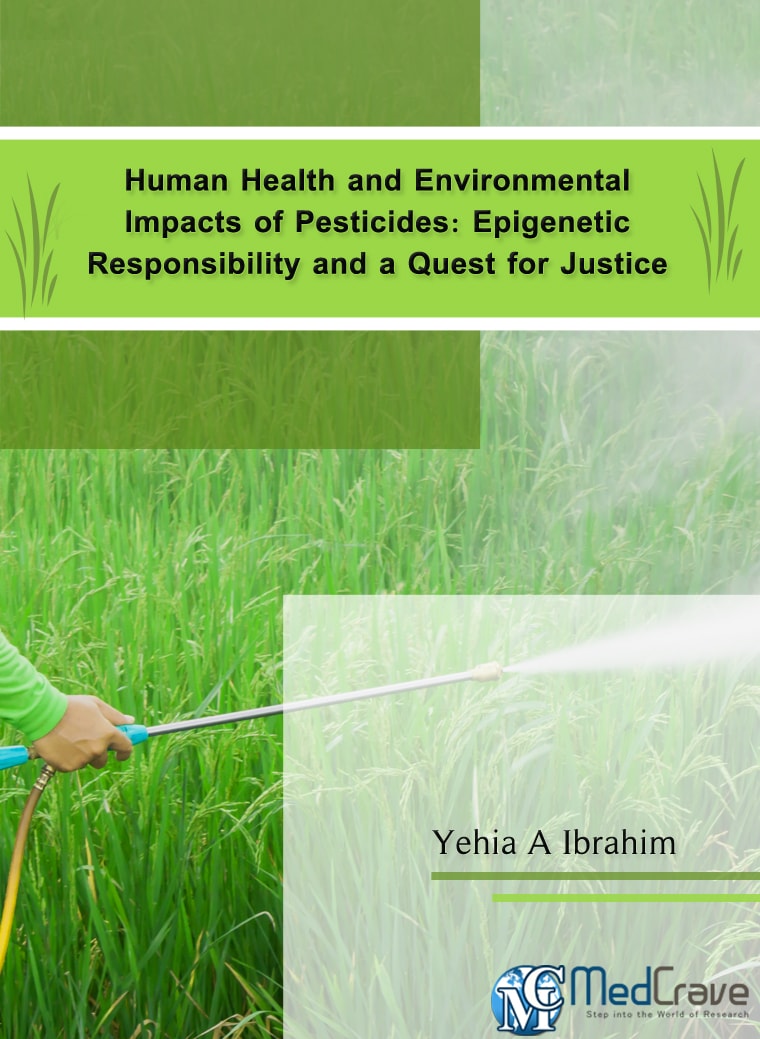eBooks View all | By AtoZ | By category
Human Health and Environmental Impacts of Pesticides: Epigenetic Responsibility and a Quest for Justice
By Yehia Ibrahim
Assiut University, Egypt
Published: Oct 19, 2016 | pg. no: 1-24
Abstract: The reasonable certainty of no harm is the ultimate principle upon which all pesticides should be registered and regulated. There is a multitude of reasons or causations that explains any appreciable human-health and environmental impact of pesticides beyond this principle. This review will only shed some light on these causations, but focus mainly on a misconception-based regulatory policy. The wrong assumption of treating adjuvants as inert materials leads regulatory authorities - worldwide - to assess the risk of exposure to ‘pesticide formulation(s)’ based on hazard data for its ‘active ingredient alone’. Glyphosate is used in this review to prove the erroneousness and danger of this regulatory policy. Shortly, the regulatory-set acceptable daily intake (ADI) of glyphosate ‘alone’ is 4-5 orders of magnitudes more hazardous when used within the context of its formulation(s) to which people are actually exposed. This erroneous policy, in addition to the recent findings which indicate that glyphosate is an endocrine disruptor with an epigenetic potential, make regulatory authorities responsible and accountable for any epigenetic harms caused by this herbicide. Unfortunately, epigenetic cases are not genuinely covered by the current legal systems; thus harmed or disadvantaged people may not have recourse to legal action. For example, under the tort law pesticide-related epigenetic cases will be lost in the context of statutory limits, liability dilution, victim attenuation, and lack of documented proofs for the cause-effect relationship. The most serious crime of pesticide epigenesis is that people may lose their lives for no good reason except that they were the descendants of those who had been exposed some years or decades ago to epigenetically-active pesticides. It is important that the tort law be amended to properly handle future claims of regulatory miscalculated risk and epigenetic effects of pesticides. Equilibrium between harm discovery rules, statue limitations, and statute of repose must be reached to assure: 1. Litigation and stale claims of allegedly epigenetic harm over years or decades after memories have faded and witnesses have disappeared; and 2. Economic environment is reasonably secure to support vibrant development of plant protection business.
View eBook
